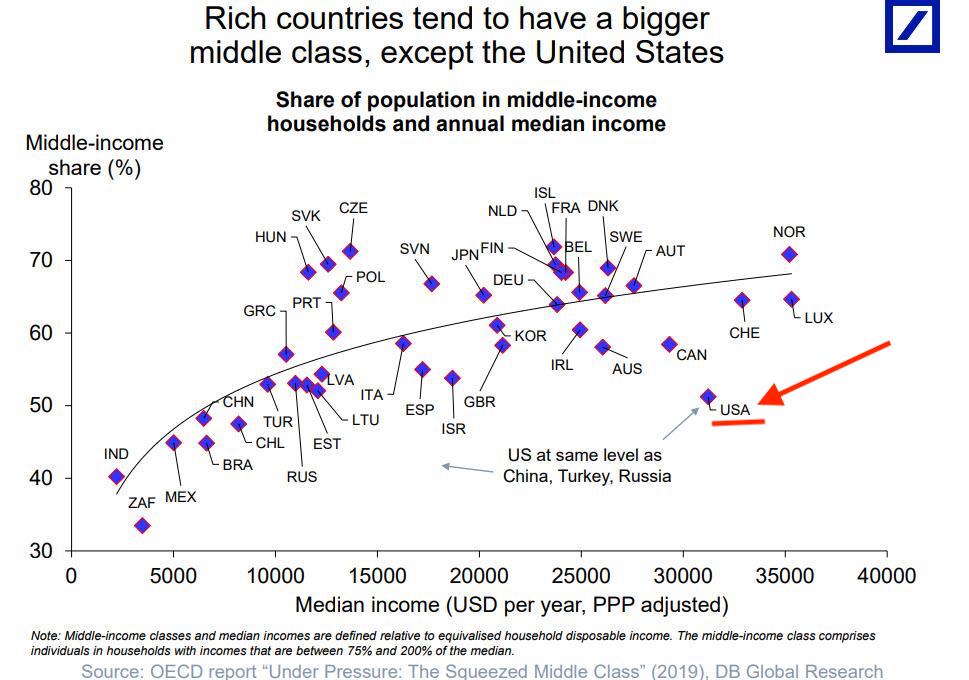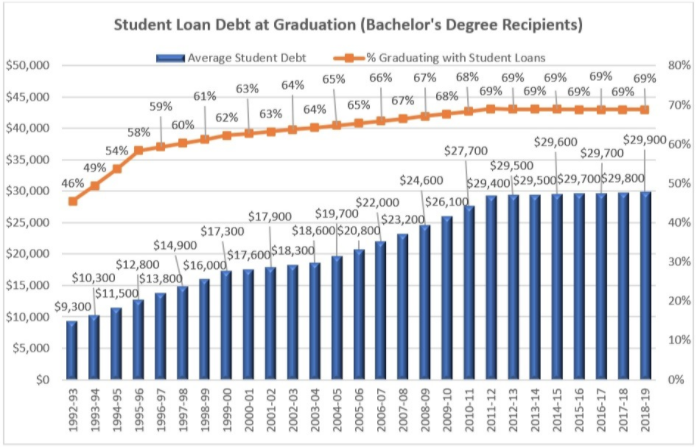The middle class, and those aspiring to the middle class, families are incurring ever increasing amounts of debt to pay for consistently rising costs of attending college which many believe essential to achieve economic prosperity. Subsequently, to compensate for stagnating academic achievement in order to compete for college admissions, middle class parents are spending on education related experiences, more commonly known as, extracurricular activities. Finally, the much-coveted college degree, acquired at an ever increasing cost, may not deliver the promised result, a lifelong membership in the middle class.

Although the increasing numbers of students attending college, 35% of all high school grads in 2008, up to 41% in 2018, according to the National Center for Education Statistics, jobs seem not to be materializing for students upon graduation. Pre-COVID, 41% of 24-35 year old college grads according the the Federal Reserve Bank of New York, were underemployed, meaning they were working jobs not requiring a college degree or they worked at less hours than desired.
And, generationally, the numbers of children earning more than their parents has been steadily declining for decades, including Millennials and oldest of the Gen Z’ers.

A 2018 Federal Reserve study found that millennials actually earn about 20 percent less than their parents did (when adjusted for inflation and debt service)
Logan Kane, Seeking Alpha, June 11, 2019
Now, without a salary or wage concomitant with their degrees, yet because in the past 12 years 70% of all college grads have graduated nearly $30,000 in student debt, 22 to 35 year olds are struggling to pay their bills, so they’re moving back home to live with parents.

Mark Kantrowitz, Saving For College
A recent TD Ameritrade poll indicates that 39% of all 22-29 year olds are now living at home with their parents, an increase from the pre-COVID 22% of all 22-35 year olds, according to analysts at Zillow in May 2019. Living with parents, Millennials and now the oldest of the Gen Z’ers are delaying purchasing houses, getting married and forming their own families, delaying their entrance or participation in the middle class. Thus, the shrinking of the middle class continues, despite the increasing percentages of young people attending college.
If the results promised, a lifelong economic prosperity, or at best, safely ensconced in the middle class, by obtaining a college degree are not realized, then might the sentiment regarding the value of a college degree, begin to wane? Finally, if earning a college degree no longer guarantees lifelong membership in the American middle class, how do we convince Gen Z’ers and those in subsequent generations, to pay for the economic burdens of previous generations by being responsible citizens, although possibly at lower standard of living than their parents?
For more information about how to both plan for and navigate the complex college admissions process in order to minimize the risk of educational malinvestment, check out Creative Marbles Consultancy



